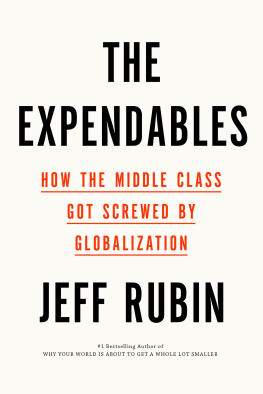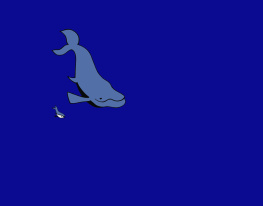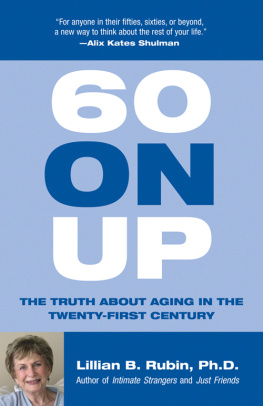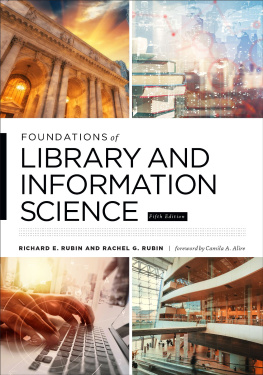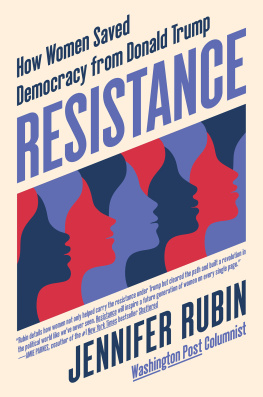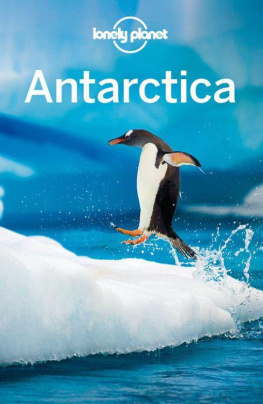Jeff Rubin - Why Your World Is About to Get a Whole Lot Smaller: Oil and the End of Globalization
Here you can read online Jeff Rubin - Why Your World Is About to Get a Whole Lot Smaller: Oil and the End of Globalization full text of the book (entire story) in english for free. Download pdf and epub, get meaning, cover and reviews about this ebook. year: 2009, publisher: Random House Publishing Group, genre: Romance novel. Description of the work, (preface) as well as reviews are available. Best literature library LitArk.com created for fans of good reading and offers a wide selection of genres:
Romance novel
Science fiction
Adventure
Detective
Science
History
Home and family
Prose
Art
Politics
Computer
Non-fiction
Religion
Business
Children
Humor
Choose a favorite category and find really read worthwhile books. Enjoy immersion in the world of imagination, feel the emotions of the characters or learn something new for yourself, make an fascinating discovery.

- Book:Why Your World Is About to Get a Whole Lot Smaller: Oil and the End of Globalization
- Author:
- Publisher:Random House Publishing Group
- Genre:
- Year:2009
- Rating:5 / 5
- Favourites:Add to favourites
- Your mark:
- 100
- 1
- 2
- 3
- 4
- 5
Why Your World Is About to Get a Whole Lot Smaller: Oil and the End of Globalization : summary, description and annotation
We offer to read an annotation, description, summary or preface (depends on what the author of the book "Why Your World Is About to Get a Whole Lot Smaller: Oil and the End of Globalization " wrote himself). If you haven't found the necessary information about the book — write in the comments, we will try to find it.
Jeff Rubin: author's other books
Who wrote Why Your World Is About to Get a Whole Lot Smaller: Oil and the End of Globalization ? Find out the surname, the name of the author of the book and a list of all author's works by series.
Why Your World Is About to Get a Whole Lot Smaller: Oil and the End of Globalization — read online for free the complete book (whole text) full work
Below is the text of the book, divided by pages. System saving the place of the last page read, allows you to conveniently read the book "Why Your World Is About to Get a Whole Lot Smaller: Oil and the End of Globalization " online for free, without having to search again every time where you left off. Put a bookmark, and you can go to the page where you finished reading at any time.
Font size:
Interval:
Bookmark:


TO DEBORAH, JACK AND MARGOT
REDEFINING
RECOVERY
BEING AN ECONOMIST CAN RUIN YOUR APPETITE.
It is probably not the only job that has that effect. Ive never worked as a taxidermist, but I can see that it might turn me off fish. My job, though, gets me worried about fish in a whole different way.
I like salmonwho doesnt? Salmon consumption has risen about 23 percent each year for the last decade or so. There are a number of good reasons to eat more fish: we all want food high in omega-3s, we want to eat less saturated fat, we want healthy protein for our low-carb diets. But heres the key reason for the amount of salmon on your dinner table: cheap oil has been subsidizing the cost of fish. Just like Wal-Mart and Tesco and big-box retailers around the world have been able to cut prices on almost everything by taking advantage of cheap shipping and cheap Asian labor, salmon went from being delicious local seafood to being another global commodity. Cheap oil gives us access to a pretty big world.
In the global economy, no one thinks about distance in milesthey think in dollars. If oil is cheap, it really doesnt matter how far a factory is from a showroom or a farmers field from a supermarket. Its the cost of other things, like labor or tax, that determines what happens where. An Atlantic salmon caught off the coast of Norway is destined to be moved around the world just like a ball bearing or a microprocessor.
First the fish is taken to port in Norway, where it is frozen and transferred to another vessel, which will take it to a larger port, probably Hamburg or Rotterdam, where it will be transferred to another ship and schlepped to Chinamost likely Qingdao, on the Shandong Peninsula, Chinas fish-processing capital. There the whole salmon will be thawed and processed on a sprawling, neon-lit factory floor where squads of young women with nimble fingers skin, debone and fillet the fish. It will then be refrozen, packaged, stowed on another container ship and sent to a supermarket in Europe or North America. Two months after it was caught, the salmon will be thawed, displayed on crushed ice under gleaming halogen lamps and sold as fresh.
Still, if Im sitting in a nice restaurant and Im enjoying a good conversation over a glass of wine, that is not what I am thinking about. And anyway, the shipping news doesnt normally appear next to a menu item. But if that conversation turns to energy and oil prices (and I confess it does fairly regularly), then when I glance at that fish I know I am looking at the past.
In the near future there is going to be less salmon on our tablesand probably fewer restaurants to eat in, too. Because the cheap-oil subsidy that makes Norwegian salmon affordable is about to disappear.
And as it does, your world is about to get smallermuch, much smaller.
To get that salmon from the ocean to your plate takes a ridiculous amount of energy. Think of the fuel for the fishing boats, container ships and just-in-time delivery trucks; the energy to freeze and process the fish, to sell it in a supermarket (retail stores use almost as much energy per square foot as factories do, just on heating, cooling and lighting). We invest a lot more energy to get that salmon than we get out of it when we eat it, which in itself makes the fish a bad energy deal. Economics calls it a diminishing rate of return.
But it gets worse. A lot worse. All of that energy costs money, and energy gets more expensive just about every day. Not quite every day, of coursethe recession that seemed to catch everyone by surprise in 2008 brought oil prices down in spectacular fashion. But even the deepest recessions last barely over a year. Those prices will be on their way back up soon enough. And however you want to measure the energy in that fishcalories, miles, joules, barrels of oilit is inevitable that the price of fish is going to go up as well.
The seafood on your plate depends on cheap energy. And what is true of salmon is true of just about everything else. All you have to do to find an example is look around. Every morning when I head out to go to work, I see thousands of examples: the commuters making their way downtown from far-flung suburbs. The city I live in happens to be intersected by one of the busiest highways in North Americahalf a million cars make their way through its most heavily trafficked interchanges every day. Are those commuters going to be living or working where they are today when oil prices inevitably soar again? And if they are, will they still be driving cars? Either our living arrangements or our transportation options are going to have to change. In other words, our whole way of life depends on the price at the pumps, and that price depends on an uninterrupted supply of oil.
Think about that as you drive to work. Have a look at all those car dealerships, the gas stations and garages, the drive-thrus and big-box stores surrounded by huge parking lots. Try to imagine your lifepicking up dry cleaning, taking your kids to hockey, going to Home Depot on the weekend, heading to the cottage in the summerwithout a car. If you are like most people in North America or Australia, or even a less car-dependent country like the UK, you probably cant do it. And if you cant, you now have a small sense of what depends on the price of what comes out of the pump.
I say a small sense, because not only does your car burn energy, it is made from energy. Just building your car requires as much energy as it burns in several years. Add to that the fact that the plastics and paints and interior elements are made from petrochemicals derived from oil, and the picture becomes clearer. The house you live in is probably powered by electricity generated, at least in part, from hydrocarbons, and is almost certainly heated with natural gas or oil. The clothes you wear to work were probably made in some distant land and shipped here using relatively cheap oil, just as the coffee beans that went to make your latte were grown in a far-off country where the sun shines brighter and the labor is much cheaper, and then were shipped here.
So you see, its not just your salmon. Despite the steady barrage of climate-change news and a growing sense that our affluent lifestyle may have unpleasant consequences for the environment, few of us stop to consider how just about every facet of our lives is built around our energy consumption. Nearly everything we do is inextricably bound to our use of energy.
And by energy I mean oil. Yes, we use natural gas and some coal to generate electricity; but the worlds car and trucks and ships and planes run on oil. That means that the global economy runs on oil, because the global economy is about moving things around the world. And the reason the global economy has put all its eggs in one basket is that there is no other basket. As of right now, everythingfrom the salmon on your plate to the entire model of a global economydepends on keeping the oil flowing.
Now, what happens when the price of salmon goes up? You buy less of it. And when the price of gasoline goes up, you drive less. When the price of clothes or computers or anything else goes up, everybody buys less.
And when everybody spends less, you have a recession.
Its not all that complicated. High energy prices cause recessions. A recession is not the end of the world, of course, though if you are one of the many people who has lost a job or seen your investments melt away, it can seem that way. Still, history keeps showing that the economy recovers, usually after a few quarters, and life goes on. Markets pick up, factories ramp up production, and eventually youre back to eating all the salmon you want.
Font size:
Interval:
Bookmark:
Similar books «Why Your World Is About to Get a Whole Lot Smaller: Oil and the End of Globalization »
Look at similar books to Why Your World Is About to Get a Whole Lot Smaller: Oil and the End of Globalization . We have selected literature similar in name and meaning in the hope of providing readers with more options to find new, interesting, not yet read works.
Discussion, reviews of the book Why Your World Is About to Get a Whole Lot Smaller: Oil and the End of Globalization and just readers' own opinions. Leave your comments, write what you think about the work, its meaning or the main characters. Specify what exactly you liked and what you didn't like, and why you think so.

